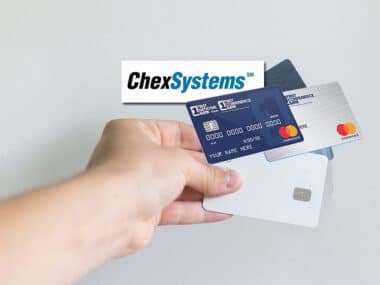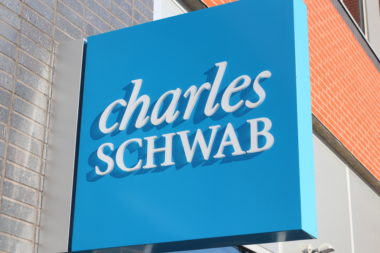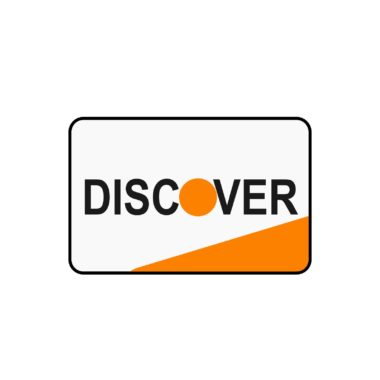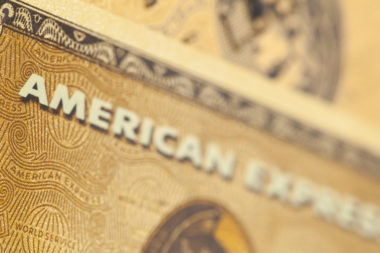Most people are not satisfied with the subpar, but instead try to obtain the optimal version of anything and everything. However, when it comes to our finances, some of us have adopted a more laissez faire attitude, and base our decisions on short-term satisfactions rather than long-term benefits.
This is true for one of the most important choices we can make with our money: which bank to deposit it in. Not all banks are created equal. With news of some banks mishandling their customers’ money, and cybersecurity being important more now than ever, deciding which bank to partner with requires a lot more thought and consideration than we usually give them.
After all, if you were to give a person your money to look over for safekeeping, you wouldn’t just give it to anyone, right? It’s the same with banks — but how do you distinguish the “okay” banks from the “better” banks? What should you look out for before setting up an account? Although figuring out how to choose a bank may not sound as glamorous as other financial tasks, you and your money will definitely thank you for it later.
Table of Contents
Determine Your Personal Finance Habits
Some financial decisions may appear more impersonal than others, but deciding what is the best bank to use is a deeply personal one. After all, a bank that fits the needs of one individual may not necessarily meet yours. You have to consider which factors are important, and which are not not important, to truly find the best bank to use. Here are a few variables to keep in mind on how to choose a good bank.
What Are Your Financial Goals?
What you ultimately want to do with your money and life will determine the right bank for you. Examples of some personal financial goals include:
- Creating a budget
- Building an emergency fund
- Buying a house
- Saving for retirement/college fund
- Starting a business
All of these things and more will require your bank to be able to perform different, specific actions that not all branches can perform. With that being said, keep in mind both short-term and long-term goals so that the bank you’re with has the resources to back you up both now and in the future.
Does Bank Location Matter?
The answer to this question really depends on you. If you physically need to go to a bank more often than not, then it’s a good idea to narrow down your choices to institutions that are nearby. The extra money you spend on transportation could outway the benefits of a bank with a longer commute.
However, if you don’t require or care for any in-person actions, then location will not be as big of an issue — allowing you to increase your options to banks farther away as well as to ones that solely operate online.
How Often Do You Use an ATM?
Taking note of how much you utilize ATMs will also direct you to the bank that will best serve your needs. Since many establishments charge a fee if you use an ATM from another bank, it would be wise to research what these fees are, as well as where and how many ATMs each institution has available.
This information is especially pertinent if you withdraw cash often and travel to different locales on a regular basis. If withdrawing cash is a rare or nonexistent occurrence in your life, ATM availability will not be as big of a concern.
Is Online Banking Important?
In a world that has become increasingly dependent on technology, many banks have implemented Online banking options to make handling money more convenient for their customers. From depositing checks remotely to easily transferring money to different accounts and people, there are a plethora of tools that can make managing your finances that much simpler.
Not all banks offer the same online features, so it’s up to you to decide which services you want and which you can live without. National and online banks will have the most up to date technology while some of the smaller institutions like community banks and credit unions will have simpler versions.
Credit Union vs Bank
Another thing to consider is whether or not to partner with a bank or a credit union. Although both establishments offer many of the same services, there are some differences that you should be aware of:
- Owners: The owners of banks are vastly different from owners of credit unions. When it comes to banks, shareholders are in charge with voting powers based on the shares that they have. On the other hand, credit unions are owned by the people that use it: their customers. Each person gets a vote — no matter how much money is in their accounts — on who gets to be a board member. While people who run banks get paid for their time, those in charge of credit unions are all volunteers.
- Objectives: The end goal of banks and credit unions differ as well. The main purpose of banks is to increase the wealth of their shareholders. Credit unions, instead, use their profits to lower rates on loans and bump interest rates on the deposits of their customers.
- Capabilities: As mentioned before, banks and credit unions provide similar services. However, the scope and reach of these services are where the two deviate. Banks are better equipped to handle the financial needs of businesses and corporations of any size, while credit unions are more suited to for individual financial needs and concerns.
- Regulations: Since credit unions and banks are two different establishments, the way they’re regulated and who they’re regulated by differ as well. Banks have a whole host of agencies they have to answer to and rules to abide by. Credit unions are regulated by one national agency called the National Credit Union Administration, and any state agencies depending on where they’re located.
In the end, there’s no one size fits all when it comes to choosing between a credit union or bank. It very much depends on what your personal finance goals are and determining which establishment will aid you the best in your pursuits.
Discover What a Bank Offers
Many banks offer customers the same products and services no matter which institution you enter. However, just how the same meal at different restaurants can taste vastly unsimilar, each establishment will have their own unique flavor. By researching what a bank offers, you can make a more educated decision on the best bank to use.
Types of Bank Accounts
Most people are familiar with checking and savings accounts, but there are actually a lot more places you can deposit your money in. Depending on what you want to do with your savings, some types of bank accounts will be more suitable than others. Here are a few to keep in mind:
- Money Market Accounts: Money market accounts are much like a savings account, but with a higher interest rate. However, there are not as many restrictions with this type of bank account, allowing the bank to use whatever money you deposit to invest in other things. Some money market accounts also require a minimum balance and other stipulations in order to use it.
- Certificate of Deposit: Certificate of Deposit or CDs offers another option to place your savings. However, unlike other accounts where you can withdraw money anytime with no consequences, CDs require that you leave your money untouched for a certain period time. If you retrieve any of that money before that time is up (usually between three months and five years), you will be penalized and have to pay a fee. However, because of this time constraint, higher interest rates can be associated with CDs — with rates increasing the longer the term is.
- Brokerage Accounts: If you’re looking to invest, a brokerage account may be right for you. Brokerage accounts allow you to invest in the stock market how you want and when you want. In order to open an account, you’ll have to go through a broker. However, you can still make the final decisions on where your money is being invested in. Depending on who you go through, you will have to pay a commission for trading as well.
Before choosing any account, make sure you’re aware of what it offers and any fees or restrictions that come with it. It’s best to shop around before settling on one so that you’re truly getting the best bang for your buck.
Fees and Interest Rates
Researching the fees and interest rates associated with each bank is crucial in your financial journey. If you don’t need to pay extra money and can have your savings accrue even more interest, why wouldn’t you? If possible, choose accounts with no fees associated with them, such as for checking accounts and ATMs.
Also look into low balance and overdraft fees before deciding on a bank. It’s important to compare interest rates for their different accounts, credit cards, and loans as well. Credit unions and online banks may offer the best deals since one is a nonprofit and the other doesn’t have the extra expenses of a brick-and-mortar store, respectively.
Types of Investment Options
Investing for the future should be a part of everyone’s financial plan. Many banking institutions provide a number of investment options for their customers to consider, including the accounts that were mentioned before as well as Individual Retirement Accounts (IRA) and mutual funds.
The great thing about these and other investments is that you can go through multiple banks to take advantage of the best offers. However, it may be more convenient to find a single establishment to invest with to make transfers and keeping track of your money easier.
How to Choose a Bank You Can Trust
Everything mentioned before are necessary factors to consider. However, no matter how many favorable options a bank has available, it all becomes null if you can’t trust the institution that is meant to safeguard your money. By being aware of what to look out for before choosing a bank, you’ll likely make a decision you won’t regret later on.
Research a Bank’s Financial Stability
Nobody wants to partner with a bank that will go bankrupt anytime soon. Although you may not be able to predict what the economy will look like tomorrow, there are agencies in place to protect consumers and their money. One such agency is the Federal Deposit Insurance Corporation (FDIC). The FDIC was created during The Great Depression after thousands of banks had to close their doors for good, leaving many people without their life savings.
To rebuild faith in the U.S. financial system, the FDIC insures the deposits in banks so that if anything were to happen to these financial establishments again — from failures to bank robberies — customers would not lose a single dime. To make sure your money is going to a safe place, check that your bank and the accounts you use are insured by the FDIC or the National Credit Union Administration for credit unions.
What Business Ethics Do They Follow?
Doing a quick online search will tell you a lot about a prospective bank and their business practices. It could even be a good idea to research financial scandals and see which banks were involved. Reading bank reviews can also give you insights in how things are run and how other people feel about it. By choosing a bank you feel ethically good about, you can deposit your money with ease without worrying if you’ll get swindled out of it.
Read the Terms and Conditions
Most of us tend to skip reading the terms and conditions when it comes to a lot of things. However, when your money is involved, no word should be left unread. You could be paying for many unnecessary charges or signing with a bank that’s uninsured.
Additionally, reading the terms and conditions will help you learn more about the kind of bank your partnering with and whether or not you should open an account with them. It will also give you peace of mind that you didn’t agree to anything you wouldn’t have if told before about it.
Even though choosing a bank is not one of the top decisions you make in life, it is an important one to think about. There are both personal and impersonal factors to consider — and what may be the right bank for you may not be for another person. So keep your eyes open and do your research before you make a deposit.
Image Source: https://depositphotos.com/





